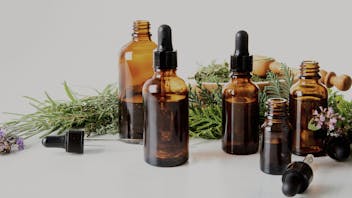Product Overview
Our Himalayan Cedarwood essential oil has a dry, woody, warm and balsamic aroma with a slightly crude/camphoraceous top note; it displays a delicately sweet-woody aroma and good tenacity in the drydown. The species name deodara evolved from the word devadāru, a Sanskrit word that translates to "timber of the gods" – thus the Himalayan Cedar is regarded as a particularly sacred tree. Many shrines and places of worship are built with this sturdy, invulnerable wood, leading some to believe that the deep and warm Cedarwood aroma is ideal for diffusion during meditation.
Cedar trees have played a central role in aromatics from ancient times to the present. From ancient Egypt, to India, Tibet, the Mediterranean, and North America, the cedar tree has been respected and revered. The finest Cedarwood essential oil comes from the Atlas Cedar and is very closely related botanically to the Himalayan Cedar; these produce very similar, yet differently nuanced, essential oils.[1] It is thought that Atlas and Himalayan Cedar trees originated from Cedrus libani, the famous Lebanon cedar.[2]
The strength and power of this tree can be observed in spring when, after a cold winter, the long, graceful limbs, laden with heavy snow and ice are relieved of their burdens and are buoyant once again. These massive trees not only survive but thrive for hundreds of years with an entire ecosystem supported beneath their feet and in their airy upper levels.
Please be aware when purchasing Cedarwood essential oil. We recommend Atlas and Himalayan Cedarwood oils, as they are the most notably used, have an appealing aroma, and are the only true Cedar oils typically available. Texas Cedarwood and Virginia Cedarwood are actually Junipers and although quite useful, are different in aroma and effects. Cedar Leaf oil is from a species of Thuja and is best used very carefully or not at all due to its potential toxicity.
1 Rhind, Jennifer Peace. Essential Oils – A Handbook for Aromatherapy Practice, 2nd ed., 2012, pp. 239-40.
2 Arctander, Steffen. Perfume and Flavor Materials of Natural Origin, 1960, pp. 139, 141-2.
3 Industry communication.
4 Kumar, Satyanshu. Analytical Techniques for Natural Product Research, 2015, p. 31.
5 Tisserand, Robert and Rodney Young. Essential Oil Safety, 2nd ed., 2014, p. 238.



